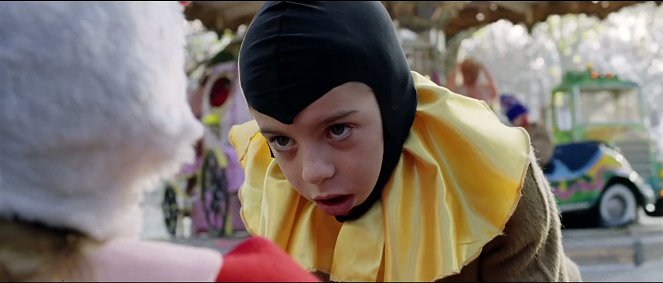Directed by:
Saverio CostanzoCinematography:
Fabio CianchettiComposer:
Mike PattonCast:
Alba Rohrwacher, Luca Marinelli, Isabella Rossellini, Filippo Timi, Vittorio Lomartire, Arianna Nastro, Martina Albano, Tommaso Maria Neri (more)Plots(1)
Prime numbers can only be divided by themselves or by one, and, as such, they are inherently solitary phenomena. If two primes come together the result will be unpredictable, to say the least. This is the matematical- -philosophical premise underlying the novel The Solitude of Prime Numbers by 26-year-old Italian physicist Paolo Giordano, published in 2008. The adaptation of the instantaneous bestseller was taken up by one of Italy’s most intriguing contemporary young filmmakers, Saverio Costanzo. The director (with script collaboration from Giordano himself) left key events in the novel unchanged yet, in contrast to the linear character of the original text, he adopted a very loose approach to the narrative structure of the film version. Employing fragments, ellipses and flashbacks, he presents the story of the vulnerable Alice and her equally introverted friend Mattia, two “prime numbers” whose lives, each unfolding along its own axis, are marked by two tragic episodes from their childhood. With strong emphasis on expressivity of sound and image, Costanzo succeeds in mediating a powerful sense of apprehension, fear and also rare intimacy. (Karlovy Vary International Film Festival)
(more)Reviews (2)
A film full of pain, but which doesn’t hurt. The non-chronological arrangement of events (unlike the novel on which it is based) would be justified if the well-thought-out dispensing of information built up to an essential revelation. However, the unorganised structure does not in any way help the drama, but is actually detrimental to it, as the constant interspersing of one scene with another makes it impossible for at least one of them to “fade out”. The crucial moments (the accident, disappearance) lack power and urgency, so the film comes across as lifeless as Alice and Mattia. Without any explanation of its deeper causes, the protagonists’ suffering is superficial. Misfortune is presented for its own sake. The dramatic dysfunction and psychological unbelievability discourage us from being surprised by details such as Alice’s changing hairstyle, the indifference of Mattia’s parents to their son’s slashed arms and the fact that Mattia and his mentally disabled sister attend the same school and are even in the same grade. Most of the above-mentioned shortcomings are also present in the book, from which Costanzo tries and mostly fails to break away not only with the poorly chosen narrative form, but also with raw visuals (different for each period) and the use of inappropriately poppy music as a way of connecting scenes that are distant from each other in both mood and time. 45%
()
A realistically conceived film about how sometimes our lives are destined to suck from the start, but how it's not necessarily factors we control. Sometimes it's just bad luck, fate, or whatever you want to call it. The performances are good, but story-wise, it just didn't manage to engage me, and the film didn't entertain me that much.
()

